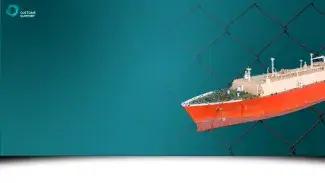A reminder on what is restricted so far
Since 2014, the EU has imposed several rounds of sanctions against Russia. Here are some of the restrictions in EU sanctions packages one to 13:
- Asset and travel freezes for high-profile individuals and those belonging to certain companies, institutions, or sectors.
- The SWIFT ban on 10 Russian banks
- Prohibition on supplying Euro notes to Russia
- Economic restriction on the transfer of funds or investments, including:
- The block on foreign investment from Russian people and of Russian companies from European people
- The restriction on providing crypto wallets to Russian people.
- Restrictions on the trade of commodities, including:
- Restriction on road transport operators, trailers, and semi-trailers registered in Russia.
- No access to Russia vessels in EU ports, including ship-to-ship transfers in EU waters.
- Restricted supply of exports to Russia in the aviation, marine, and space sectors.
- Prohibitions on services, such as IT, legal, marketing, advertising, financial, and other technical industries.
- The broadcasting of some Russian media outlets.
- Visa access for individuals of a particular profile.
- Oil and coal from Russia and the supply of related exports to Russia.
- The sanctions against Russian iron and steel.
- Imports of wood, paper, rubber, and plastics from Russia.
- Blocks on Russian transport, including:
- A closure of EU airspace to Russian aircraft
- Purchase, import, or transfer of non-industrial diamonds.
- Components relating to the development and production of drones, such as electric transformers, static converters and inductors, and aluminium capacitors.
Additionally, the 12th package of EU sanctions against Russia imposed stricter definitions and penalties for circumnavigation in line with the crackdown on EU sanction violations.
The 13th package of sanctions against Russia also included tighter measures for exports to some Asian countries, Türkiye, and former Russian shipping countries due to reports and risk of circumnavigation.
Sanctions do not only involve Russian individuals and entities, but those in China, Korea, and other Asian countries who are reportedly supplying sanctioned technology to Russia.
What is in the 14th package of EU sanctions against Russia?
Included in the EU’s 14th sanctions package against Russia are restrictive measures 69 individuals and 47 entities responsible for actions undermining or threatening the territorial integrity, sovereignty and independence of Ukraine – as well as the illegal deportation of Ukrainian children and religious persecution in the illegally-annexed region of Crimea.
Amongst those sanctioned are companies providing vital dual-use technologies used in the battlefield, and companies transporting weapons and military personnel either towards the war zone or into Russia from the Democratic People's Republic of Korea (North Korea).
With the latest additions, the list of sanctioned individuals, companies, and other entries is now over 2200 entries long. The newly registered entities will have their EU assets reviewed and seized, and EU individuals and business are prohibited from making funds available to them.
Here are some other areas which were affected:
Helium imports
As a large revenue source for Russia, the import of helium is now subject to restrictions. It is estimated that only 1% of the EU’s helium come from Russia, so it is best to find an alternative supplier.
LNG and other energy products
The latest sanctions target the transportation of liquefied gas, crude oil, and petroleum products. Sovcomflot, Russia's largest shipping company specialising in the industry, has been listed alongside it’s CEO and other notable companies servicing this area.
Moreover, the EU has forbidden the reloading of Russian LNG in EU territory for the purpose of re-export to third countries. This covers both ship-to-ship and port-based transfers.
To further impact the sector outside of the EU, the Commission has prohibited new investments which will contribute to the completion of Russian LNG projects – such as Arctic LNG 2 and Murmansk LNG. This includes the provision of goods, technology and services to those working on these projects.
Anti-circumvention in the export sector
In an effort to crack down on anti-circumvention, the 14th package of sanctions against Russia has extended some regulations to subsidiaries of EU companies outside of the EU.
There are also further restrictions for goods which contribute to Russian industrial efforts, such as chemicals (including manganese ores and compounds of rare-earths), plastics, excavating machinery, monitors and electrical equipment.
Additionally, the requirement for EU companies to fulfil due diligence are more important. You must, to the best of your ability, determine that your third-country subsidiaries and trade partners are not involved in activities which contribute towards an outcome which the sanctions are against.
Some countries of concern are China, Kazakhstan, Kyrgyzstan, Türkiye, and the United Arab Emirates, where there are a number of reports of circumvention and supporting Russian military efforts.
This includes the teaching of industrial know-how to third-country organisations. If you are passing on knowledge in sensitive sectors, you must have contractual provisions to ensure that this knowledge will not be passed to Russia, nor used for goods destined for Russia.
Financial circumvention
Following the initial sanctions, the Central Bank of Russia developed the System for Transfer of Financial Messages (SPFS) to counteract the effects on their transactions.
From the implementation of this 14th package of sanctions on Russia, EU companies and their subsidiaries outside of the EU are prohibited from connecting to the SPFS and equivalent systems.
Furthermore, EU operators are forbidden from making transactions with specifically listed entities who use these systems outside of Russia.
In addition to financial messaging systems, a ban has been introduced on targeted credit, crypto, and financial service providers who are established outside of the EU. This is because these financial institutions facilitate transactions that enable Russia’s trade of dual-use goods and technology, sensitive items, battlefield goods, firearms and ammunition.
Additional transport restrictions
Sanctioned vessels
The 14th round of sanctions against Russia now includes vessels for the first time. The 27 vessel targeted are now subject to a port access ban and a ban on the provision of services.
There are a number of reasons for which vessels have been banned, which include transporting Russian military equipment, stolen Ukrainian grain, or components used in the Russian energy sector.
This also targets tankers from Russia’s dark fleet, which circumvent the EU and Price Cap Coalition’s caps – adopting deceptive shipping practices in complete disregard of international standards.
Aircraft
The prohibition of Russia- or Belarus-originating or destined aircraft to land in, take off from or overfly the territory of the EU will also apply to any aircraft used for a non-scheduled flight.
This is applicable when a Russian natural or legal person, entity or body, is in a position to effectively determine the place or time for its take-off or landing.
Additionally, operators must provide any information about the aircraft when asked – including on ownership and passengers.
Road transport
The 14th package of sanctions now extends the previous prohibition on transporting goods by road, including by use of a transit procedure, to EU operators which are more than 25% owned by Russian nationals or entities.
You may be entitled to compensation
Introduced in this round of sanctions is a measure which allows EU operators to claim damages caused by Russian companies due to sanctions implementation and expropriation.
This latest measure is to protect those EU operators who have been heavily affected by sanctions.
Need advice regarding the 14th sanctions package against Russia?
Customs Support is here for you. Operating in over 13 countries across Europe, we work with you to provide the local and international advice that you need to ensure that you remain compliant with current legislation.
If you need help with navigating the EU’s 14th package of sanctions against Russia, contact us for more information.












